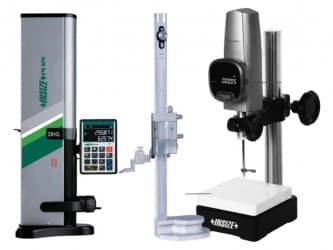Weight Measuring Scales
Weight measuring scales, also known as
weighing scales or balances, are devices used to measure the weight or mass of
an object. They are widely used in various industries, laboratories, commercial
settings, and households for weighing items of different sizes and quantities.
Weight measuring scales come in different types and technologies, each suitable
for specific applications. Here are some commonly used weight measuring scales:
1. Mechanical Scales: Mechanical scales operate based on a system of levers
and counterweights. They typically have a platform where the object to be
weighed is placed. As the object's weight is applied to the platform, it causes
a mechanical mechanism to move, which in turn indicates the weight on a scale
or dial. Mechanical scales are often used for general weighing purposes and are
commonly found in households and small businesses.
2. Spring Scales: Spring scales, also known as hanging scales or fish
scales, use a spring mechanism to measure weight. The object to be weighed is
attached to a hook or hanger, and the weight causes the spring to stretch or
compress. The scale displays the weight by reading the position of a pointer on
a calibrated scale. Spring scales are portable and commonly used for weighing
objects in fishing, luggage, and trade applications.
3. Digital Scales: Digital scales utilize electronic components to measure
weight and provide a digital readout. They often have a platform or tray on
which the object is placed, and the weight is determined by strain gauge
sensors or load cells located beneath the platform. Digital scales offer
precise and accurate measurements, often with additional features such as tare
function (to subtract the weight of containers), unit conversion, and weight memory.
They are widely used in laboratories, kitchens, retail, and industrial
settings.
4. Analytical Balances: Analytical balances are highly sensitive and precise
weight measuring instruments used in scientific laboratories and research
facilities. They are designed to measure small quantities of substances with
utmost accuracy. Analytical balances often feature a draft shield to protect
the sample from air currents that could affect the measurement. These balances
have high precision and typically offer features like internal calibration,
decimal point readability, and advanced weighing modes.
5. Industrial Scales: Industrial scales are heavy-duty scales designed for
large objects, bulk materials, or heavy loads. They come in various forms, such
as platform scales, floor scales, crane scales, and truck scales. Industrial
scales often utilize load cells or hydraulic systems to handle the weight and
provide accurate measurements. These scales are commonly used in manufacturing,
logistics, agriculture, and freight industries.
It's important to select the appropriate weight measuring
scale based on the specific requirements of the application. Factors to
consider include the maximum weight capacity, precision, durability, ease of
use, and any specific features needed for the intended use. Regular calibration
and maintenance are necessary to ensure the accuracy and reliability of the
weight measuring scales.





